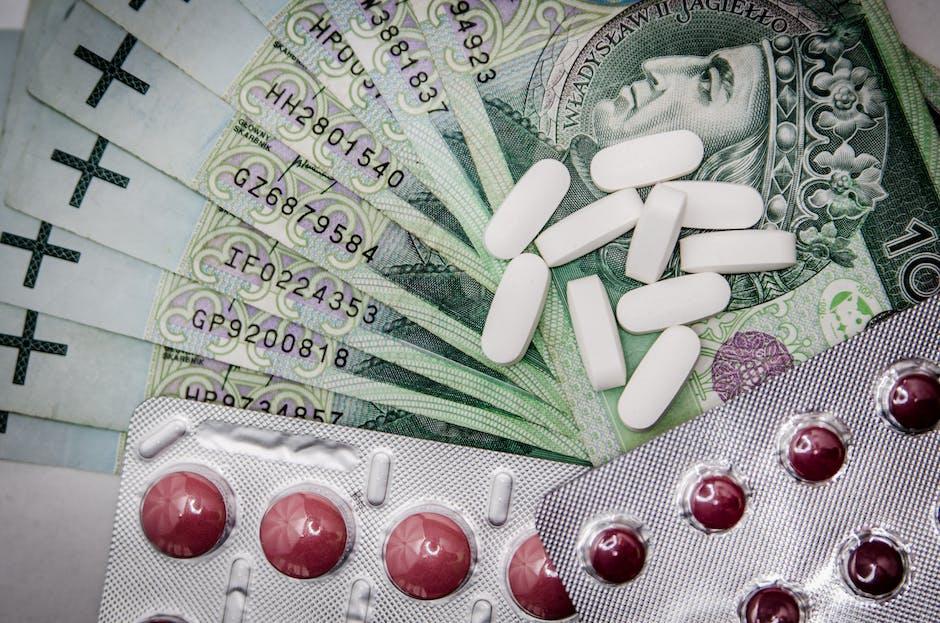Attention Deficit Hyperactivity Disorder (ADHD) is a common neurodevelopmental disorder that affects both children and adults. While medication has been the traditional treatment method, there are innovative alternatives that offer promising results. This blog post delves into these novel treatments, providing a comprehensive guide for those seeking alternatives to medication for managing ADHD symptoms.
Key Takeaways
- Understanding ADHD and the need for innovative treatments
- The role of lifestyle adjustments in managing ADHD symptoms
- Non-pharmacological interventions for ADHD
- Innovative therapeutic approaches for ADHD
- Early intervention and prevention strategies for ADHD
Understanding ADHD and the Need for Innovative Treatments
Definition and Symptoms of ADHD
ADHD is characterized by persistent patterns of inattention, hyperactivity, and impulsivity that interfere with functioning or development. Symptoms include difficulty staying focused, being easily distracted, forgetfulness, fidgeting, difficulty staying seated, and impulsive behaviors.
Limitations of Traditional Medication Treatments
Side effects of medication
While medication can be effective in managing ADHD symptoms, it often comes with side effects such as sleep problems, decreased appetite, mood swings, and heart issues. These side effects can be distressing and may outweigh the benefits of the medication for some individuals.
Long-term dependency issues
Long-term use of ADHD medication can lead to dependency issues. Some individuals may develop a tolerance to the medication, requiring higher doses for the same effect, which can lead to addiction.

Lifestyle Adjustments to Manage ADHD Symptoms
Importance of Daily Habits and Environment
Impact of routine on ADHD symptoms
Establishing a consistent daily routine can help manage ADHD symptoms. Routine provides structure and predictability, which can reduce anxiety and improve focus.
Environmental factors that worsen symptoms
Certain environmental factors, such as high levels of noise or clutter, can exacerbate ADHD symptoms. Creating a calm, organized environment can help reduce distractions and improve concentration.
Specific Lifestyle Changes
Sleep patterns
Improving sleep hygiene can have a significant impact on ADHD symptoms. Lack of sleep can worsen symptoms, while a regular sleep schedule can improve focus and reduce hyperactivity.
Dietary considerations
Certain dietary changes, such as reducing sugar intake and increasing consumption of omega-3 fatty acids, have been shown to improve ADHD symptoms.

Non-Pharmacological Interventions
Meditation and Mindfulness
Benefits of meditation for brain function
Meditation and mindfulness practices can improve attention and reduce impulsivity in individuals with ADHD. These practices can help train the brain to focus and reduce distractions.
Techniques suitable for children and adults
There are various meditation and mindfulness techniques suitable for both children and adults with ADHD. These include mindfulness-based cognitive therapy (MBCT), mindfulness-based stress reduction (MBSR), and yoga.
Physical Exercise
Role of exercise in brain health
Regular physical exercise can improve brain health and reduce ADHD symptoms. Exercise increases the production of brain-derived neurotrophic factor (BDNF), a protein that supports brain function and mental health.
Types of exercises recommended for ADHD
Aerobic exercises, such as running and swimming, are particularly beneficial for individuals with ADHD. These exercises can improve focus, reduce impulsivity, and improve mood.

Innovative Therapeutic Approaches
Equine Therapy
How interaction with horses can help
Equine therapy involves therapeutic activities with horses. Interaction with horses can help improve focus, reduce anxiety, and improve social skills in individuals with ADHD.
Case studies and outcomes
Several case studies have shown the effectiveness of equine therapy in managing ADHD symptoms. Participants reported improved focus, reduced hyperactivity, and improved social skills after participating in equine therapy.
Sensory Diet for Sensory Processing Issues
Definition of a sensory diet
A sensory diet is a personalized activity plan that provides the sensory input a person needs to stay focused and organized. It can be particularly beneficial for individuals with ADHD who also have sensory processing issues.
How it complements ADHD treatment
A sensory diet can complement other ADHD treatments by providing additional support for focus and organization. It can help reduce distractions and improve the ability to stay on task.
Early Intervention and Prevention Strategies
Understanding Prenatal and Early Life Risk Factors
Research findings on early risk factors
Research has identified several prenatal and early life risk factors for ADHD, including maternal smoking during pregnancy, premature birth, and low birth weight. Understanding these risk factors can help in early intervention and prevention strategies.
Strategies for early life intervention
Early life intervention strategies for ADHD include parental education, behavior therapy, and lifestyle changes. These strategies can help reduce the risk of developing ADHD and improve outcomes for those who do develop the disorder.
Parental Involvement and Education
Recognizing symptoms early
Early recognition of ADHD symptoms can lead to earlier intervention and better outcomes. Parents play a crucial role in recognizing these symptoms and seeking help.
Tailoring treatment strategies to individual needs
Every individual with ADHD is unique, and treatment strategies should be tailored to their specific needs. Parental involvement and education can help in developing a personalized treatment plan that addresses the individual’s specific symptoms and challenges.
For more information on ADHD and its treatments, visit our page on Attention Deficit Hyperactivity Disorder. For more on non-pharmacological interventions, check out our article on The Application of Neurofeedback in Managing Symptoms of ADHD. And for supplements that can help manage ADHD symptoms, see our guide on Anxiety Relievers, Impulse Control Disorder Supplements for Calming, Mood Stabilizers.
Unlocking New Horizons: Innovative ADHD Treatments Beyond Medication FAQ
What are some non-medication treatments for ADHD?
Non-medication treatments for ADHD include a variety of behavioral therapies, dietary adjustments, exercise, and mindfulness practices. Behavioral therapies can involve cognitive-behavioral therapy (CBT) to improve self-control and develop coping strategies. Dietary adjustments might include reducing sugar and caffeine intake while increasing omega-3 fatty acids. Regular physical activity, especially aerobic exercise, has been shown to help improve focus and cognitive function. Mindfulness practices, such as meditation and yoga, can also help individuals with ADHD by enhancing their ability to concentrate and remain calm.
How effective is cognitive-behavioral therapy (CBT) in treating ADHD?
Cognitive-behavioral therapy (CBT) has been found to be an effective treatment for ADHD, particularly in adults. It helps individuals develop organizational skills, improve time management, and reduce impulsive behavior. While CBT does not cure ADHD, it can significantly improve symptoms and the ability to manage them, leading to better overall functioning. It’s often used in conjunction with other treatments, including medication and lifestyle changes, for the best results.
Can diet really make a difference in managing ADHD symptoms?
Yes, diet can play a significant role in managing ADHD symptoms. While no specific diet acts as a cure, certain dietary changes can help improve focus and reduce hyperactivity. Reducing sugar, artificial colors, and preservatives, while increasing omega-3 fatty acids, protein, and complex carbohydrates, can contribute to better symptom management. It’s important to consult with a healthcare professional before making significant dietary changes.
What role does exercise play in treating ADHD?
Exercise is a powerful tool for managing ADHD. It boosts the brain’s dopamine, norepinephrine, and serotonin levels, which affect focus and attention. Regular physical activity can improve concentration, mood, memory, and motivation. Aerobic exercises, like running, swimming, or cycling, are particularly beneficial. Incorporating a routine of regular exercise can significantly help with ADHD symptoms.
Are there any benefits to using mindfulness and meditation in ADHD treatment?
Mindfulness and meditation can be highly beneficial for individuals with ADHD. These practices help enhance focus, reduce stress, and improve emotional regulation. By learning to be present and aware without judgment, individuals with ADHD can better manage impulsivity and distractibility. Regular mindfulness practice has been shown to increase attention span and decrease hyperactivity and impulsiveness.
What is neurofeedback and how does it work for ADHD?
Neurofeedback is a type of biofeedback that teaches individuals to change their brain wave patterns. It uses real-time displays of brain activity—most commonly EEG—to teach self-regulation of brain function. For ADHD, neurofeedback focuses on enhancing the brain’s ability to remain in a state of focused attention. Over time, this can lead to improvements in focus, attention, and impulse control. While promising, more research is needed to fully understand its effectiveness.
Can essential oils or aromatherapy be effective for ADHD?
While research on the effectiveness of essential oils and aromatherapy for ADHD is limited, some people report experiencing a calming effect and improved focus when using certain oils, such as lavender, vetiver, and rosemary. However, these should not be considered a replacement for more established treatments. It’s important to use essential oils safely and consult with a healthcare professional before starting any new treatment.
How can environmental modifications help manage ADHD symptoms?
Environmental modifications can significantly impact the management of ADHD symptoms. Creating a structured, clutter-free environment can help reduce distractions and improve focus. Using tools like planners, timers, and reminder systems can also aid in organization and time management. Tailoring the environment to minimize distractions and maximize efficiency can be a valuable strategy in managing ADHD.



